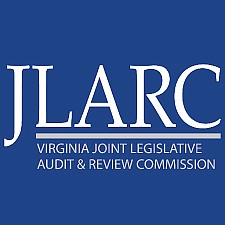JLARC report shows the cost of child care adds up in Virginia
Jeremy M. Lazarus | 10/26/2023, 6 p.m.
Most Virginia families, particularly single-parent households, currently spend far more than 7% of household income on childcare, or well above the percentage the federal government defines as affordable, according to a new state report.
Families are spending between $100 and $440 a week for child care, the report from the Joint Legislative Audit and Review Commission (JLARC) found, or between $6,000 and $22,000 a year.
On average, JLARC noted, that level of ex- pense represents about 11% of income for two- parent households and at least 25% of income for working single-parent households.
And that is if child care is available.
JLARC determined that available child care can only accommodate 88% of pre-school children, meaning demand exceeds supply. Already, about 140,000 children do not have access to day care, JLARC stated, with prospects that could increase if government assistance fades.
“Without child care, parents are often forced to reduce their work hours, take lower-level or lower-paying jobs or drop out of the workforce altogether,” said Stefanie Papps, a JLARC staffer who led the study.
“Although this can be a significant barrier to self-sufficiency for lower-income families, lack of affordable child care can be a significant barrier to employment for any family,” she noted in presenting the report Oct. 16.
According to JLARC, despite the expense, most working parents have been able to make care arrangements.
Of the nearly 1.2 million Virginia children 12 years of age or younger who need such services, JLARC estimated that 990,000 have access to informal or formal care, including school and after-school recreation programs.
Licensed child cares either public, nonprofit, private or faith-based operations care for about 470,000 children, with relatives, friends and unlicensed operators caring for the rest.
But the shortages are acute, JLARC noted, particularly for children younger than 2 years of age.
Currently, about 24,000 infants and toddlers are on wait lists for child care, according to the Virginia Commission on Early Childhood Care and Education, as are 18,000 school-age children.
The big problem is money. Virginia, like other states, has benefited from federal subsidies that grew out of the COVID-19 pandemic.
The federal government has poured $39 billion into the support of child care operations since 2020. The first $24 bil- lion was used up in September, with an additional $15 billion projected to be used up by September 2024.
According to the Virginia Commission on Early Childhood Care and Education (ECCE), the state invested more than $300 million in federal funds to support child care and keep afloat providers who man- aged to survive the economic shutdown the pandemic caused.
If the state does not continue that yearly investment in the 2024-26 budget the General Assembly is to pass in the new session that begins in January, then the child care industry in the state will
shrink while the number of low-income families who qualify for subsidies for child care will fall.
Most child care centers, despite the cost, cannot pay their staff members much above the state’s $12-an-hour minimum wage. JLARC found that on average, “lead teachers” in child care centers earned $16 per hour in fall 2022, while assistants earned $13 per hour — far below the pay for public schoolteachers.
The ECCE commission estimated that reducing state expenditures for child care subsidies to pre-pandemic levels could force shutdowns or reduced admissions.
The commission estimated that at least 36,000 children would lose day care or half of the 70,000 children who currently benefit from state help.
The ECCE estimate that nearly 38,000 working parents would experience child care-related job disruption if the state does continue that level of investment.
Some legislators are prepared to advocate for the state funding.
“There’s a significant gap between avail- able funding and funding that’s needed to continue to meet family demand for child care,” Sen. Mamie Locke, D-Hampton, said. “So it falls to the General Assembly to meet this demand.
Others are not so eager to spend taxpayer dollars that way.
Virginia Beach Republican Delegate Barry Knight, chair of the House Ap- propriations Committee, has suggested that it might be time “to pull the plug” on additional state support.








